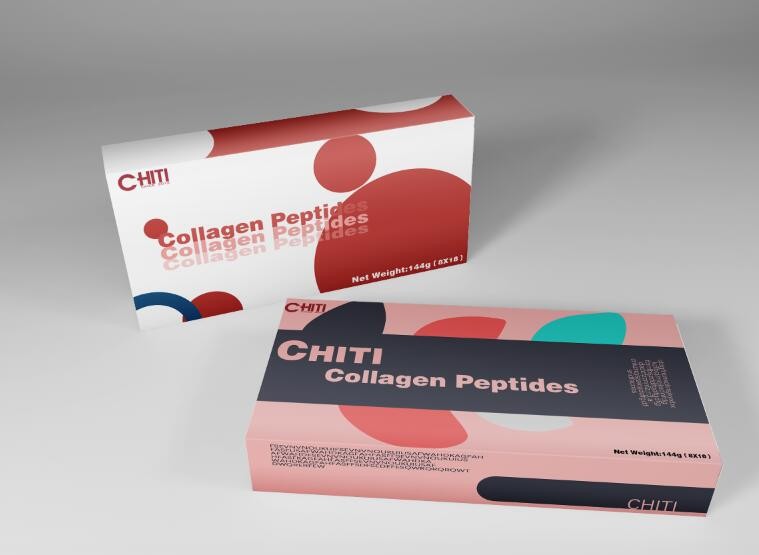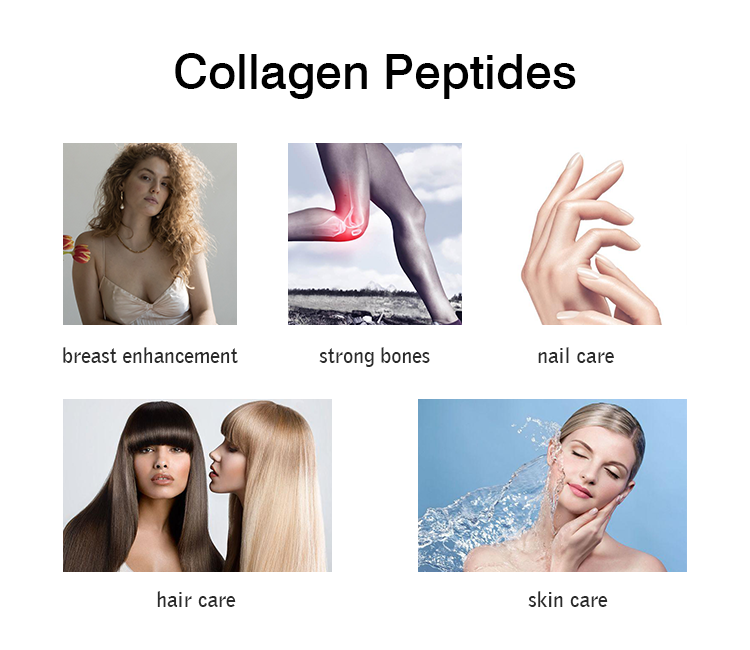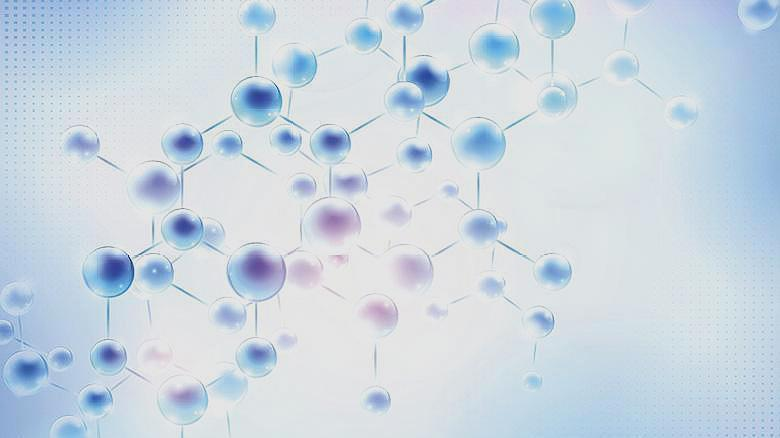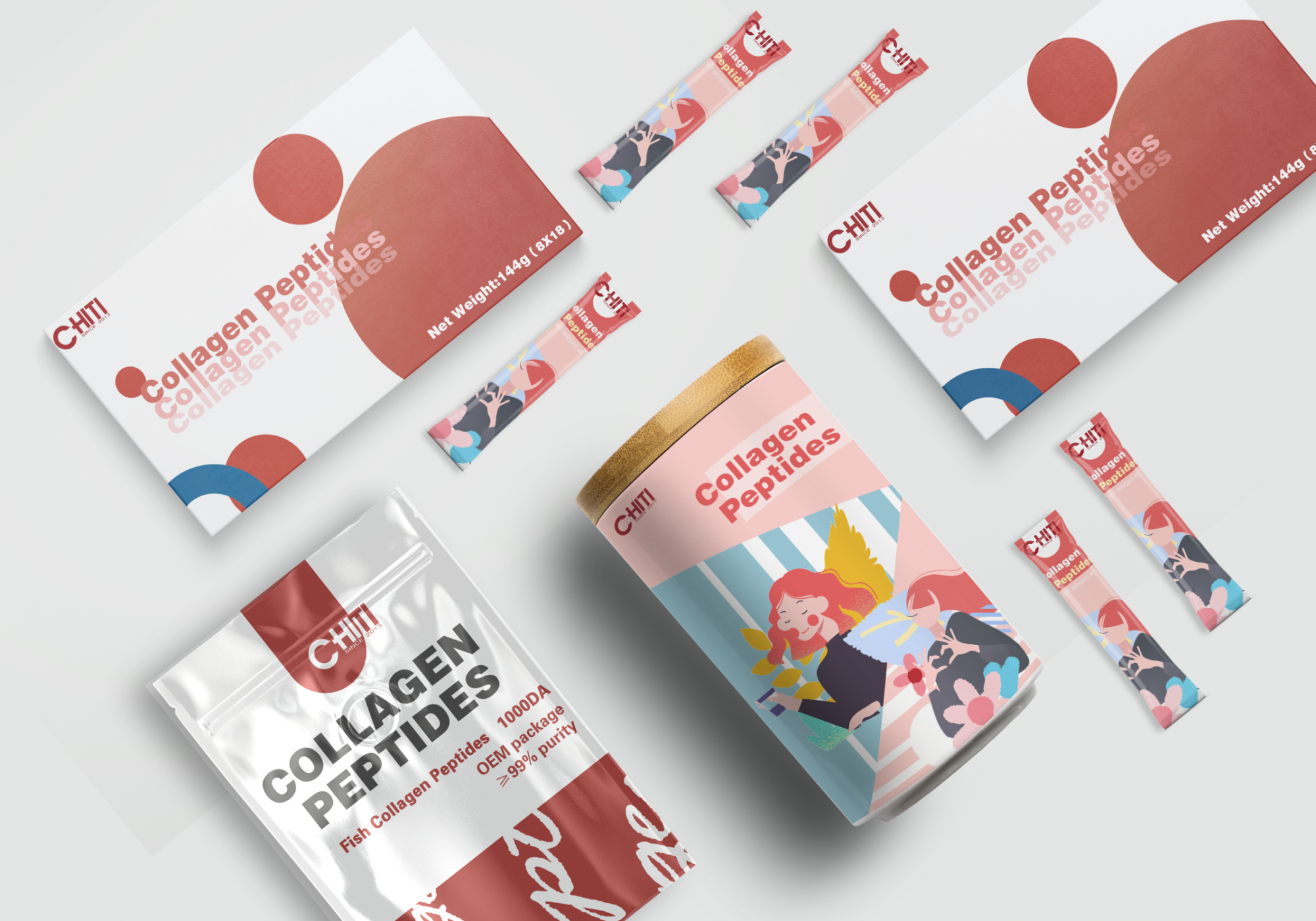Most people know what protein is and have some understanding of collagen, but when they hear collagen peptides, they are in a cloud, and there is a question in their minds: are collagen peptides and collagen not the same thing? What exactly are protein, collagen, and collagen peptide? What is the difference and connection between the three of them?

Protein:
As we all know, protein is an important component of all cells and tissues of the human body. All the important components of the body need the participation of protein. Generally speaking, protein accounts for about 18% of the total mass of the human body, and the most important thing is that it is related to life phenomena.
Protein is the material basis of life, is an organic macromolecule, is the basic organic matter that constitutes cells, and is the main undertaker of life activities. Without protein, there is no life. Amino acids are the basic building blocks of protein. It is a substance closely related to life and various forms of life activities. Every cell and all important parts of the body have proteins involved.
Protein is a substance with a certain spatial structure formed by twisting and folding a polypeptide chain composed of amino acids in a "dehydration condensation" manner. There are many types of proteins in the human body, with different properties and functions, but they are composed of more than 20 amino acids in different proportions to form 20 or more small peptides or polypeptides, and then arranged and combined, and continue to be carried out in the body.

Collagen:
Collagen is a biopolymer, a protein family, the main component in animal connective tissue, and it is also the most abundant and widely distributed functional protein in mammals, accounting for 25% to 30% of the total protein. Some organisms Even as high as 80%. It accounts for more than 30% of the total protein in the human body, and it is the largest type of protein in the human body.
Collagen can be found in all tissues and organs throughout the body. The tissues and organs with high content are: skin, bones, cartilage, ligaments, cornea, various intima (blood vessels), fascia, etc. About 80% of the 1/3 protein in bones is collagen, 59% of cartilage in joints is collagen, and more than 70% of skin is collagen.
Collagen is also an important substance for repairing damaged tissues, and it is a substance that the human body must supplement to delay aging. However, the molecular weight of collagen is too high to be directly absorbed by the human body after being eaten. It needs to be digested to form peptides and amino acids before it can be absorbed by the human body, and the absorption rate is only 2.5%.

Collagen peptide:
Collagen peptide is a small molecule active peptide formed after collagen is hydrolyzed by enzyme. Because of its small molecular weight, it can be directly absorbed by the human body, and the absorption rate is as high as 90%.
Collagen peptide is highly digestible. Except for a small part of it is decomposed by the protease in the stomach, most of it can quickly pass through the mouth and stomach and directly enter the small intestine for absorption, and finally enter the human organs, cells, tissues and human blood circulation system. Play its biological effects.
To put it simply, protein is the most basic substance of the human body; collagen is a kind of protein and is the most abundant type of protein in the human body; collagen peptide is a small molecule active peptide after collagen proteolysis, which can be directly absorbed by the human body. It is far superior to the former two in terms of absorption rate and targeting effect!
Chiti’s best-selling products, collagen peptides, including type I, type II, and hydrolyzed collagen peptides, introduced international advanced technology, fully learned from Japanese and Taiwanese processes, and used ancient fermentation microorganisms, based on local innovation and research and development. The clarity, taste, and molecular weight of the product are better than most products on the market, and the molecular weight is within 500DA. The method of taking is simple and convenient, without changing the lifestyle and rhythm, and truly achieves "point-to-point" absorption by the human body. Chiti supply collagen peptides for well-known brands in Japan and the United States, and their products are well received by customers.





